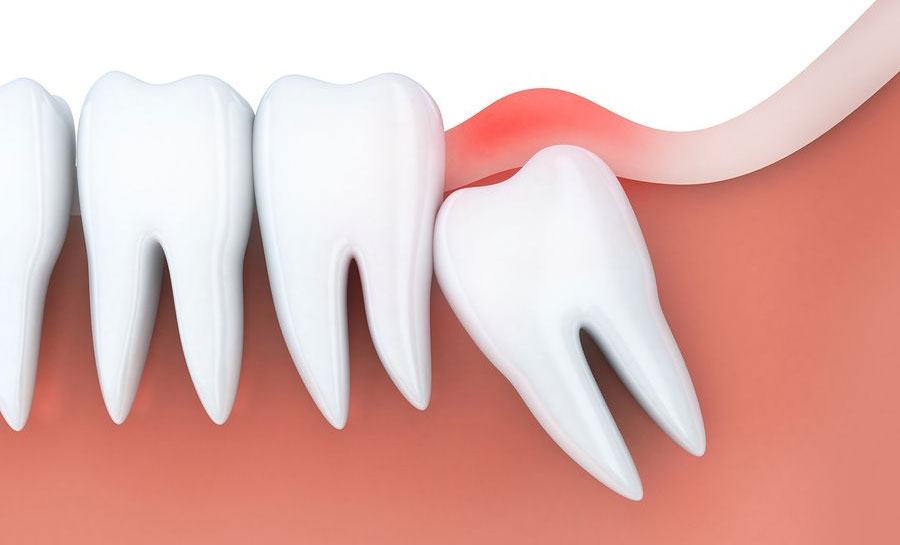Many patients will have their first – and sometimes only – experience with an oral surgeon when it is time to have their wisdom teeth extracted. In fact, wisdom tooth extraction is one of the most common procedures performed by oral surgeons.
Wisdom Teeth Removal in Charlottesville VA
The modern human mouth often doesn’t have room for the large wisdom teeth to erupt properly, leading them to become impacted, which can result in a variety of issues. Patients may choose to have impacted wisdom teeth extracted before they have the opportunity to become problematic.
Although general dentists can and do extract wisdom teeth, patients may prefer to work with oral surgeons like Dr. Ibanez for this treatment, due to their specialized expertise in oral surgery procedures in general and wisdom tooth extraction specifically.
Why The Wisdom Teeth Are Prone to Becoming Impacted
The wisdom teeth, also known as your third molars, are the largest teeth in the human mouth. As our jaws have evolved to become narrower over time, there is not enough room in the smile for these teeth to come in properly, so they often become impacted in the jawbone or gum tissue.
Millennia ago, these large wisdom teeth helped our ancient human ancestors process their highly fibrous diets and they also stood in for teeth that were more likely to be lost due to wear and tear.
However, in modern humans, we no longer need these teeth to process our relatively soft diets, and good dental care has made tooth loss less common. Because impacted teeth can cause a variety of problems for patients, many people opt to have them extracted as a preventive measure.
Impacted Tooth Removal
Risks Of Impacted Wisdom Teeth
Those risks associated with impacted wisdom teeth are significant and potentially detrimental to your oral health and your general well-being. They include:
- Discomfort
- Infection, including abscesses, in the vicinity
- Cysts and/or tumors
- Damage to surrounding teeth
- Misaligned teeth/reversal of orthodontic treatment
While impacted wisdom teeth can cause any of the issues listed above, it is often difficult to determine when those symptoms might develop. As such, patients often pursue extraction of impacted wisdom teeth even if they’re not symptomatic to avoid future problems.
It is also recommended that patients have their wisdom teeth extracted no later than age 25. The roots of the wisdom teeth get longer and more entrenched in the jaw as you get older, making the extraction more complex and extending the recovery time. Additionally, some insurance policies may not cover preventive wisdom tooth extraction after a certain age.
Treatment For Impacted Wisdom Teeth
Because impacted wisdom teeth are surrounded by bone tissue, they must be removed in a surgical procedure that excavates that bone in order to access and remove the teeth. Wisdom tooth extraction is typically completed in a single appointment, and patients often choose sedation for optimal comfort.
Patients who choose sedation will still be under the effects of that anesthesia when leaving our office. Therefore, we require that patients make arrangements for a responsible adult to take them home and stay with them until the sedation effects have reversed completely.
As with any type of oral surgery procedure, there are certain risks associated with wisdom tooth extraction. Follow all post-operative instructions provided to reduce your risk of complications. For example, for a specified time period you should avoid:
- Smoking
- Using drinking straws
- Engaging in vigorous physical activities

We will give you a comprehensive list of written instructions before your leave our office. Follow these instructions closely, and don’t hesitate to call us if you have any questions or have any concerning symptoms after your extraction.
Choosing An Oral Surgeon for Wisdom Tooth Extraction
Different kinds of dentists can perform wisdom tooth extraction, but oral surgeons are uniquely well-qualified to provide this treatment. An oral surgeon:
- Performs wisdom tooth extractions at least several times a week, if not daily
- Has extensive specialized educational background in surgical extractions
- Is likely to have access to more advanced imaging techniques to prepare more effectively for complex extractions
- Is well-versed in and may hold specialized certification to provide anesthetic and sedation techniques necessary for maximum patient comfort
If you are considering extraction of impacted wisdom teeth, we encourage you to consult with our team at Charlottesville Oral Surgery & Dental Implant Center for this treatment.
Common Wisdom Teeth Questions
How long does it take to recover from wisdom teeth extraction?
The majority of patients will be able to resume most aspects of their normal routines within 2-3 days after having their wisdom teeth extracted. However, if you have a highly active job or play sports regularly, you may need to take a few more days off from these activities to give yourself time to heal. Keep in mind that post-operative complications, like dry sockets or infection, could result in your needing extended time to heal. Following all of the provided instructions for self-care at home will significantly reduce your risk of such complications.
How long does it take for the hole to close after a wisdom tooth extraction?
It usually takes about six weeks for the jawbone tissue to heal completely, although the degree of impaction can influence this timeframe. However, patients can see the initial effects of this process in as little as a week, as the gum tissue in the area begins to regenerate.
How long does it take for local anesthesia to wear off after wisdom teeth extraction?
The local anesthesia in the vicinity of the tooth usually wears off in 2-3 hours, although your lips and tongue may feel numb for a couple of hours beyond that. After the local anesthesia wears off, you may experience some discomfort, which usually can be managed by over-the-counter painkillers.
What does a dry socket look and feel like?
A dry socket, in which a protective blood clot either fails to form or is dislodged prematurely, will often result in the whitish underlying bone being visible in the socket. The area may also look dry or discolored. Dry sockets are very painful, to the extent that patients usually recognize the symptom quickly. Avoiding things like smoking and using drinking straws can reduce your risk of dry sockets, but if you think you may have developed this post-extraction complication, call our office right away for guidance on how to address the problem.
Is it normal to have pain while swallowing after wisdom teeth removal?
Pain while swallowing and sore throats are fairly common after wisdom tooth extraction, and patients may experience this for 2-3 days after the extraction. Persistent pain beyond that timeframe can be a sign that an issue has developed. If you continue to have such discomfort more than a few days after your extraction, contact our office as soon as possible for further evaluation and guidance.
